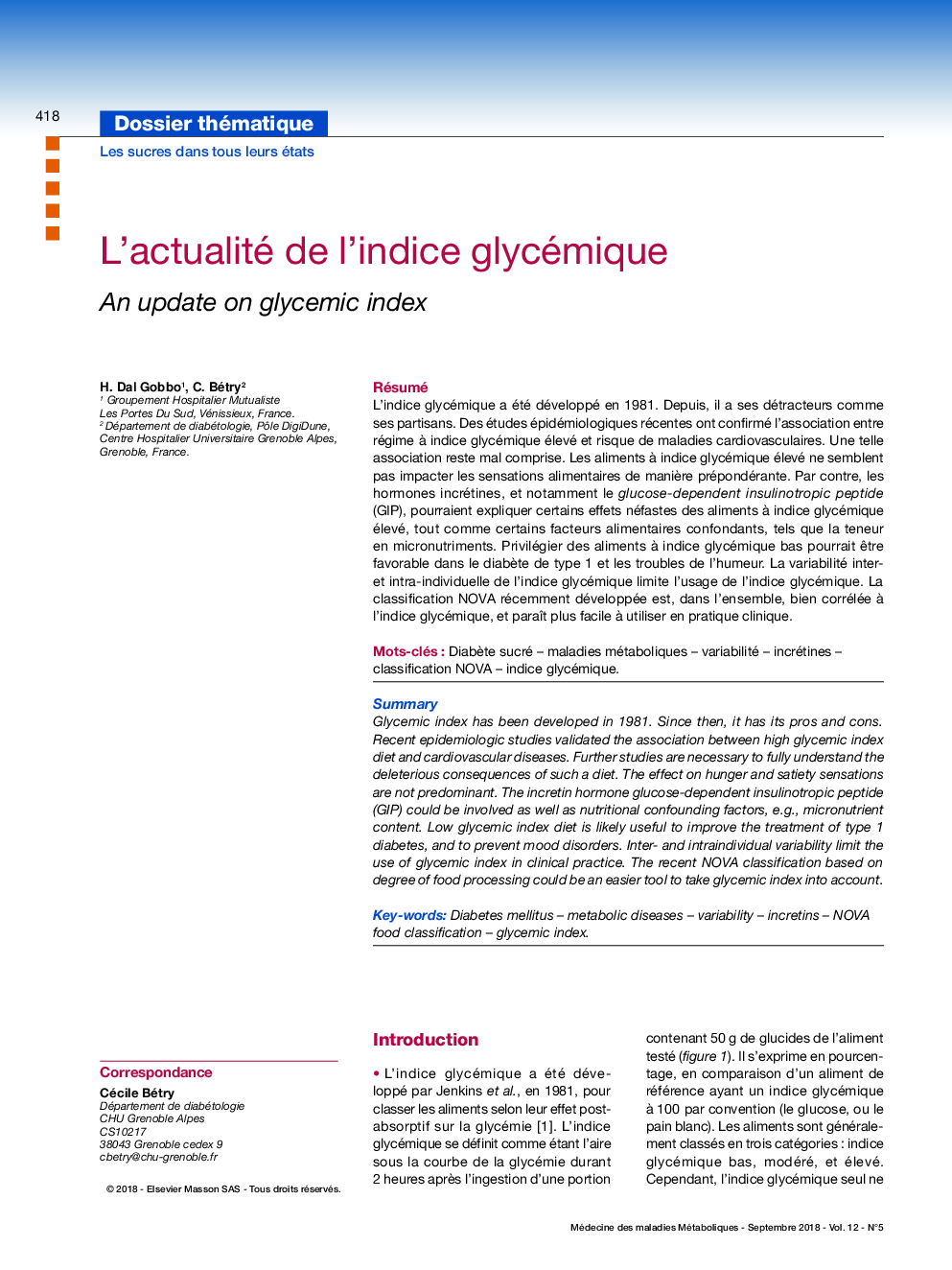| Article ID | Journal | Published Year | Pages | File Type |
|---|---|---|---|---|
| 10217790 | Médecine des Maladies Métaboliques | 2018 | 5 Pages |
Abstract
Glycemic index has been developed in 1981. Since then, it has its pros and cons. Recent epidemiologic studies validated the association between high glycemic index diet and cardiovascular diseases. Further studies are necessary to fully understand the deleterious consequences of such a diet. The effect on hunger and satiety sensations are not predominant. The incretin hormone glucose-dependent insulinotropic peptide (GIP) could be involved as well as nutritional confounding factors, e.g., micronutrient content. Low glycemic index diet is likely useful to improve the treatment of type 1 diabetes, and to prevent mood disorders. Inter- and intraindividual variability limit the use of glycemic index in clinical practice. The recent NOVA classification based on degree of food processing could be an easier tool to take glycemic index into account.
Keywords
Related Topics
Health Sciences
Medicine and Dentistry
Endocrinology, Diabetes and Metabolism
Authors
H. Dal Gobbo, C. Bétry,
